For any academic scholarship or programme, it is always positive to receive letters of recommendations from former professors, mentors, community organisation leaders, and/or past employers. Why? They can speak to your skills, talents, personality, and more based on the role they have played in your life during your academic career, commitment to your community, development as a person, and/or internship or paid employment.
When applying for a Thouron Award, we strongly consider letters of recommendations along with all other application materials. A potential Thouron Scholar’s letter of recommendations can provide our selection committee with insight they might never know, or won’t have the opportunity to learn unless the applicant is selected to attend the formal in-person panel interview.
What are Letters of Recommendation and what role do they play?
What exactly is a letter of recommendation? A letter of recommendation is a short personal letter from either your academic leaders, mentors, community organisation leaders, or supervisors that offer insight into your strengths outside of your transcripts and academic achievements. These letters are required for most academic scholarships and programmes.
A wide majority of academic institutions in the U.S. require them as a part of their application processes. While this may be a common practice in the U.S., letters of recommendation are not often required when applying to U.K. colleges and universities. As such, the Thouron Award understands that this might be the first time some applicants have had to complete this step during an application process.
Why does the Thouron Award ask for Letters of Recommendation as a part of the application process?
Since our Scholars are able to study at universities in the U.S. or in the U.K. based on their own separate applications directly to an academic programme of their choice, we adhere to a requirement for letters of recommendation and apply this requirement for applicants pursuing a degree programme in either country.
These letters allow the Thouron Selection Committee an opportunity to get to know you more personally and to ensure you uphold the values of a Thouron Scholar. They also allow us to get to know multiple viewpoints of your strengths and abilities, especially if references are provided from a variety of sources in your life — such as an advisor versus an employer.
There are key values we love to see in a Thouron Scholar, such as being inquisitive, confident, community-oriented, having integrity, and leadership. A person that you ask for a letter of recommendation from should be able to highlight these values and others that connect to you authentically with ease.
Who should write your Letters of Recommendation?
If letters of recommendations are as important as it seems, who should write them to ensure your application has a chance of standing out?
While we can’t tell you who to exactly choose, we do have suggestions that might help you determine who the appropriate references might be. For example, a professor or head of department/school is someone who can assess your academic performance in a letter. While a tutor, lecturer, or class head might have knowledge of your work, activities, or other strengths. And, sometimes a supervisor or manager of any employment you’ve had can speak to your strengths as well – whether you were in a paid or voluntary position that was permanent or temporary.
During the process of submitting your application online, you will notice that we collect the name and email address of your references and we give you the chance to provide a note to your reference as well. Applicants often use this note to expand on what the Thouron Award is and provide their reference with any guidance as to what projects or strengths they should speak to.
Of course, you must be prepared to send reminders to your references as well! You can do so through the application portal.
How many Letters of Recommendation are required?
We often hear from students that they don’t know how many letters of recommendation are enough to stand out to our selection committee. For the Thouron Award, we only require two letters of recommendation. This allows us to get a stronger understanding of you and your strengths from people who have personal experience with you.
Plus, as the old saying goes: It’s not about the quantity, but the quality.
What should a Letter of Recommendation Include?
When telling a story about yourself you might feel inclined to have your references write your entire life’s story in their letters of recommendation. However, that won’t be necessary if you know exactly what you want them to highlight about their direct experience with you in the letter.
Our suggestion is that you have letters of recommendation that are concise and briefly recap experiences your references have had with you — especially your personal and academic achievements. If you need an example by category of potential reference, here is how you could approach it (but there are no hard or fast rules):
- A professor might share their anecdotes about the role you played in your undergraduate department, projects you worked on, or your overall participation in the programme.
- A tutor, advisor, or department head might discuss your academic and personal achievements, including participating in clubs, sports, or other activities.
- A manager or employer might talk about the role you played in your workplace, moments when you have excelled, took initiative, or the type of project that you worked on while employed.
Please remember that these are merely for guidance purposes and you should discuss with your references directly what they should include in their letters of recommendation.
Why are there different deadlines for the Letters of Recommendation for the U.S. and the U.K.?
As our fellowship award is available for use at the University of Pennsylvania and any U.K college or university, we have different deadlines to make the process smoother for our different applicant pools by country of study.
For U.S. applicants, references must be submitted by 11:59pm EST on 15 October. This is the same as the overall deadline for application submissions for the Thouron Award.
For U.K. applicants, references may be submitted by 11:59pm GMT on 8 November. However, all other application materials must be submitted by 11:59pm GMT on 1 November.
Our U.K. applicants are permitted an additional week to submit their letters of recommendation due to the fact that this is not a common practice for many at U.K. colleges and universities. This provides those applicants with more time to ensure that they have the opportunity to follow up with their references.
As previously mentioned, U.S. applicants are very accustomed to receiving letters of recommendations for academic degree programmes, scholarships, and even for employment.
Have More Questions?
You can learn more about the Thouron Award, our application process, and the selection process by reading the FAQs for U.S. applicants or for U.K. applicants.
If you feel confident and ready to begin your application via our online portal, please pay close attention to which application you should initiate.
U.S. Applicants: Apply from Penn
U.K. Applicants: Apply from the United Kingdom
. . . .
As you prepare your application materials for the Thouron Award always keep in mind we want to know you and what you are all about.
We care deeply about adding more Scholars to our Thouron community who will be leaders, culturally mindful, and genuinely curious and adventurous in their lives after their studies.
We look forward to welcoming more bright minds and inquisitive souls each year!

